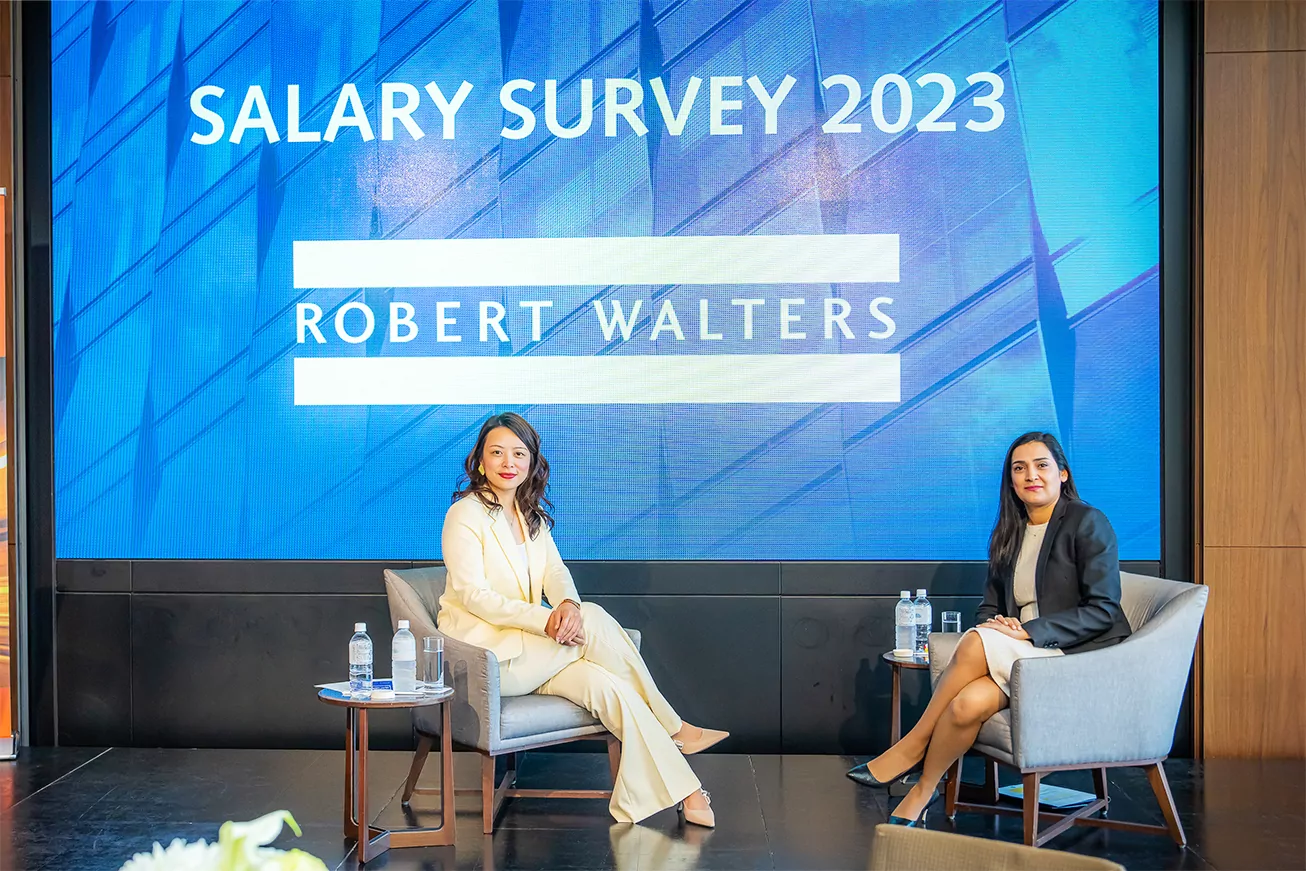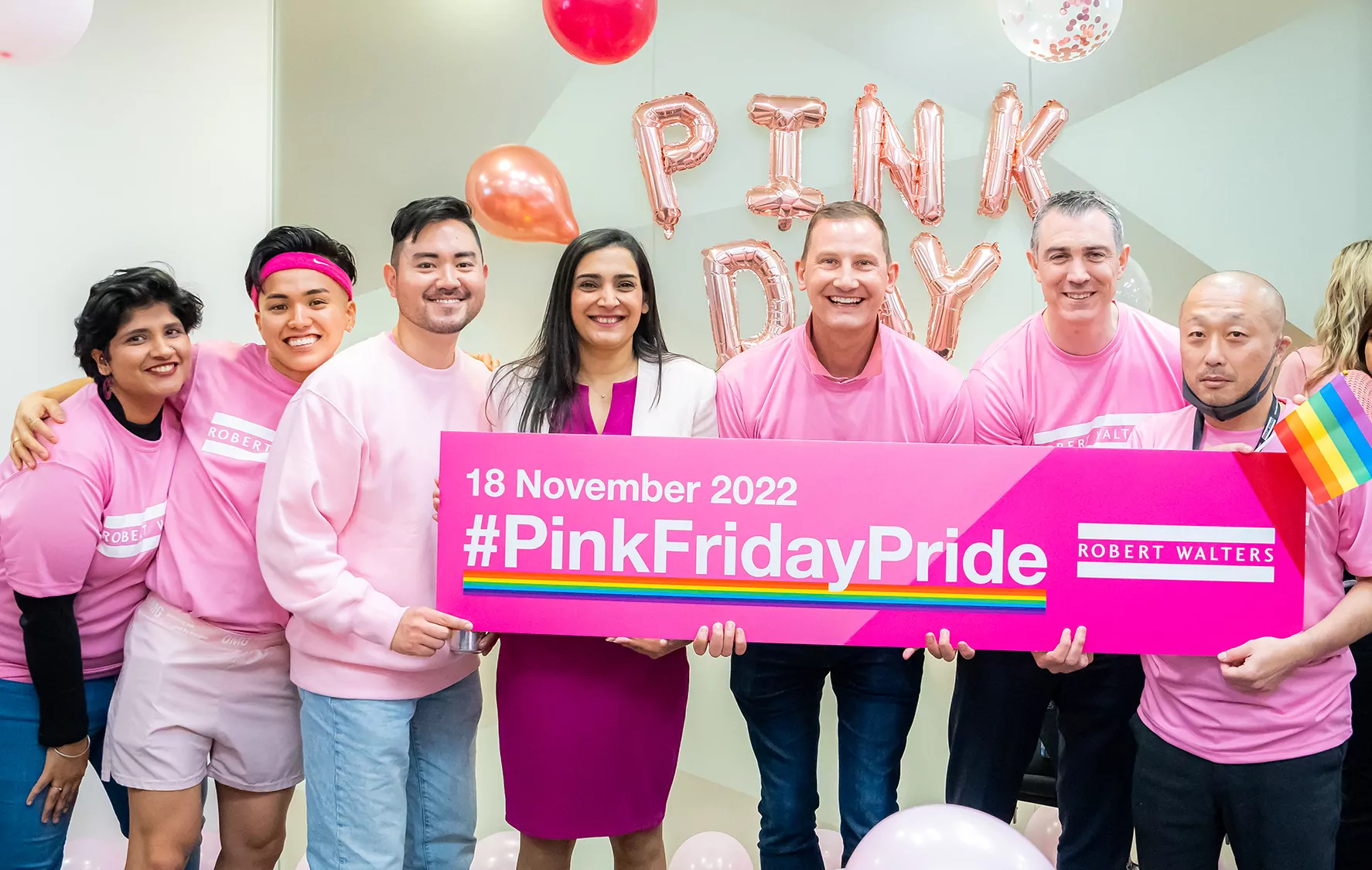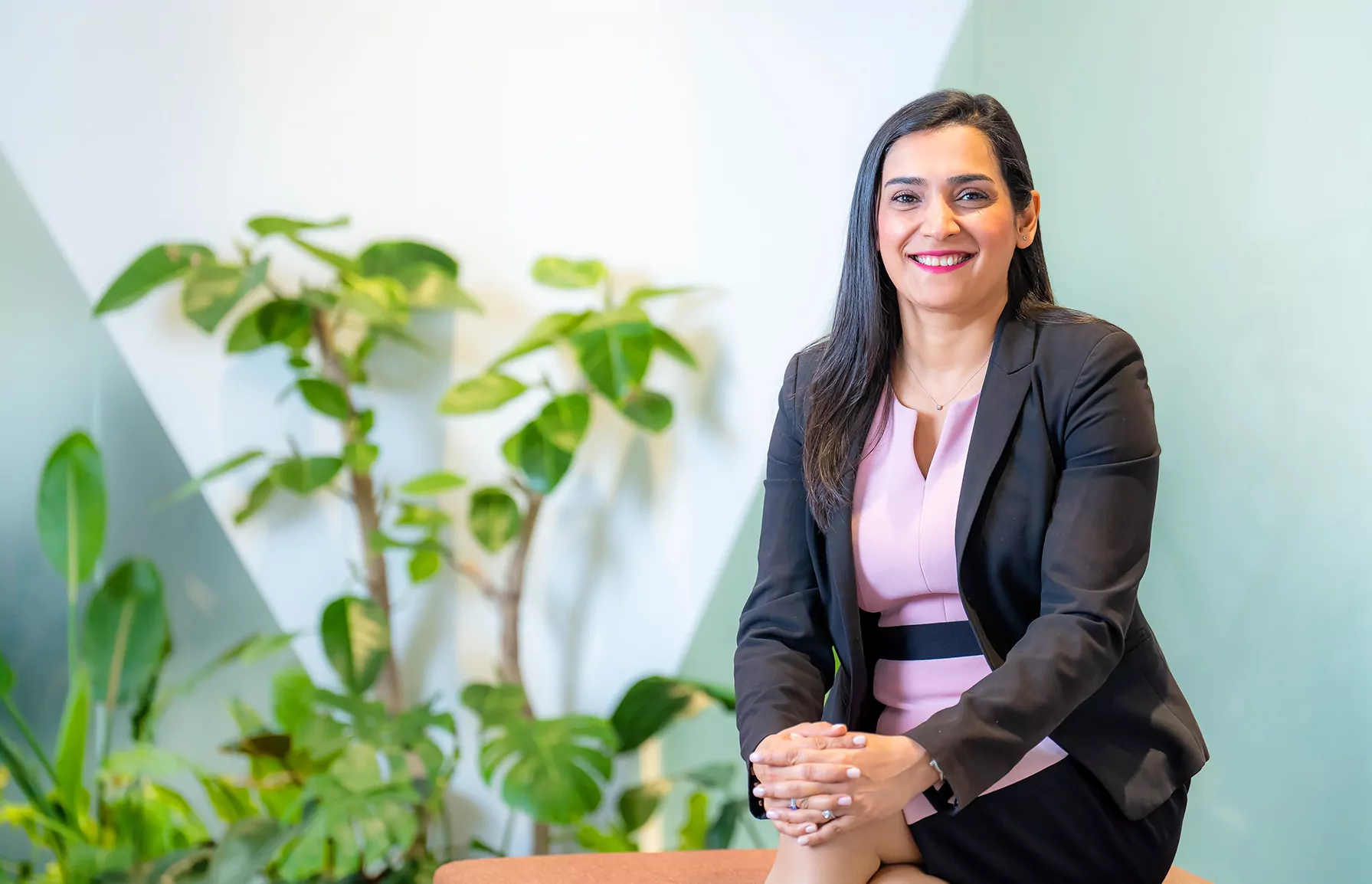BCCJ Member Spotlight – Rachna Ratra
BCCJ Junior Editor Benjamin Seamonds and Tomoka Miyashita spoke with Rachna Ratra of Robert Walters Japan to learn about transitioning into leadership, the lasting benefits of implementing a DEI strategy and empowering underrepresented groups to challenge the corporate status quo.
Thank you for joining us and congratulations on your new role as Managing Director for the Robert Walters Japan Tokyo Office. Taking a step back in time, can you tell me a little bit about your background and what brought you to Japan?
My Japan story began when I visited as a teenager a couple of times and developed a strong interest in the country and its culture. I was awarded the MEXT scholarship in 1998 which allowed me to pursue my interests by studying for a Master’s degree at Osaka University – School of Foreign Studies.
Upon graduating, I relocated to Tokyo. After a couple of years of working in marketing and recruitment, I joined the Robert Walters Japan team as an Associate in 2004. Things started to move quickly, and I was leading a team after a couple of years, before working my way up to becoming a Director in 2012. This is a role I have relished over the past decade, most recently heading the Sales and Marketing division comprising 14 teams of 70 consultants, before my appointment as Managing Director of the Tokyo office earlier this year.
You are the first female Managing Director at Robert Walters Japan since the firm started its operations in 2000. What does this achievement mean to you and also, for women in leadership as a whole?
It holds a great deal of significance for me. It’s about breaking down barriers and challenging stereotypes that sometimes prevent women from reaching top leadership positions. When I entered recruitment, it felt like a very male-dominated industry with a distinct lack of women in management positions, and generally very few women in the industry altogether.
This lack of representation made me question whether I could progress up the ranks and make it into a leadership position. But with every milestone reached and every promotion gained, the prospect of progressing into a role in leadership felt more accessible. This taught me that even if you don’t know someone of your background to have carved out the exact route before you––with a bit of belief, you can pave the path for others. I truly hope this also reflects an evolving culture in Japan; one that recognises the value of diversity, and what it brings to leadership.

Why do you believe advancing diversity, equity, and inclusion (DEI) to be so critical to the future growth and sustainability of the Japanese and global economy?
First things first, this is a conversation all companies need to start having if they are not having it already. Not only is it the right thing to do, but by forwarding what DEI stands for, you are contributing to a much more equitable society that benefits more people.
From a recruitment standpoint, DEI is absolutely critical to attracting and retaining top talent. It creates a deeper sense of belonging for employees of different backgrounds, which is increasingly important as we live in an evolving multicultural world. If employees are satisfied, they will then also refer other talent to join, with the DEI approach acting as a recruitment multiplier.
Japan is currently facing demographic challenges which include an ageing population, a declining birth rate, and a shrinking workforce which is creating challenges for companies looking to expand here. Having a positive mindset towards DEI makes filling these gaps much easier, and leaves room to grow and innovate in new ways through a set of values. If you can harness a wider diversity of perspectives, experiences, and ideas, you will find a greater range of solutions, too.
How do you see the role of women in leadership evolving in the future, and what do you think can be done to accelerate progress in this area?
I am positive that we are moving in the right direction, and that we will continue to see more women in leadership roles in Japan and globally. We are still a long way away from where we need to be, especially with regard to upper management, but there is visible progress among middle management positions.
What we need is a unified effort and commitment to promote DEI culture from all decision makers, whether that be stakeholders or senior management. This will actively bring middle management into the conversation and the DNA will embed itself across organisations. If senior leadership simply try to force diversity, equity, and inclusivity without fully understanding what it brings, say to reach a quota, the abundance of benefits will never be fully embraced. Another point is to bring more men into the conversation and encourage DEI leaders within middle management.
What do you think employers can do to empower more women to move into leadership roles? What can senior leaders do to help women move up the corporate ladder?
The key is around igniting these types of conversations, raising awareness, educating people, and then implementing specific policies and programmes that promote gender diversity and inclusion. This will encourage less resistance when the time to make changes comes around. This could include mentorship programmes, flexible working arrangements, unconscious bias training, and supporting women with further training opportunities to help develop their skills.
Another thing that is crucial is having a proper appraisal system based on results and skills. At Robert Walters Japan, we recently conducted a candidate survey and to our surprise discovered that the vast majority of companies either do not have such systems in place, or do not implement or use them effectively to evaluate results and skills.
What initiatives have you implemented in your organisation to promote diversity and inclusivity?
The ED&I (Equity, Diversity & Inclusion) Council at Robert Walters Japan, now in its third year, is aimed at making our company a much more equitable, inclusive, and open workplace. We perform regular check-ins with employees to gauge how teams and individuals feel about particular issues. We listen to feedback, take note of opinions, and discuss how we can implement changes in a way that resonates with the whole company. And once policies and internal changes have taken place, we continue to check in on employees to evaluate progress.

One of the key attributes of the Council is to foster a culture of inclusion that works for everybody. It’s not just about gender and promoting women in the workplace––it’s not just maternity policies and childcare support but is much more far reaching. We’ve hosted webinars, seminars, awareness campaigns and fun events throughout Global Diversity Awareness Month as an opportunity to learn from one another. We carry out DEI check-ins every six months, as well as a global employee engagement survey to monitor what works and what areas need tweaking. The survey has been a catalyst for initiatives such as buddy and mentorship programmes, a two-way feedback system between managers and staff, and more robust appraisal and development plans. However, with that being said, RWJ is also still on a journey; we are still learning, and there is still much more to be done.
What role does intersectionality play when companies are trying to devise their DEI strategies?
Firstly, a lot of companies, particularly in Japan, tend to focus solely on gender diversity as the primary driver of DEI. This is undoubtedly a highly important area, but we must not ignore that there are other minority groups which need to be taken into consideration when devising an effective DEI strategy.
Secondly, gender diversity is often approached from a narrow angle. Companies tend to view women as a monolithic group, and they are not focused on gender in the right way. For some of them, gender diversity and women equal “motherhood”. So, even though they focus on it, they don’t approach it from the right angle. It can be very one-dimensional. The fact is gender diversity extends beyond just motherhood. Gender diversity initiatives do not simply mean offering supportive maternity leave and childcare, as not every woman is or plans to be a mother.
The key thing is to recognize that all different identities and attributes intersect, and this intersectionality plays a significant role in people’s experiences.
For example, I am a woman, but I am also a foreigner in Japan, I am of a certain ethnicity, and belong to certain age group. And I am a mother. This combination has created a unique experience for me, and one that can be very different from that of another woman within the same team who doesn’t have the same combination or circumstances.
What advice do you wish someone had given you earlier in your career? What advice would you give to women who aspire to become leaders in their respective fields?
Don’t be afraid to speak up and advocate for yourself. Sometimes you have to be vocal about your ambitions. Many women get overlooked for leadership positions simply because they haven’t explicitly stated that it is something they wished to pursue. It’s widely assumed that men always want management positions, but women have to speak up to make their ambitions better known.
If your company does not have a proper appraisal system, false assumptions can get made. Women are also more susceptible to experiencing impostor syndrome and doubting their capabilities for the job on offer. We all experience self-doubt at times, but it shouldn’t stop us from pursuing our goals. Also, if you’re not receiving adequate support or guidance from your seniors, then seek out external mentors who will provide that guidance and support your growth.
In honour of International Women’s Day, what message do you have for women everywhere, and how can we all work together to achieve gender equality?
The first message I have is to women currently serving roles in leadership: please make sure that you are empowering and mentoring other women to help them succeed in their careers, too.
And for women more widely: when an opportunity comes along, raise your hand, speak up, and really go for it. You may not always feel as though you’re at the level you need to be for a role, but you will grow through experience, and leadership is a skill that is continuously developed over time. Leadership is not a destination; it is a journey.
My final message is to all leaders and individuals in management positions: even simple and straightforward encouragement can be hugely powerful in helping women to make that leap into leadership.


